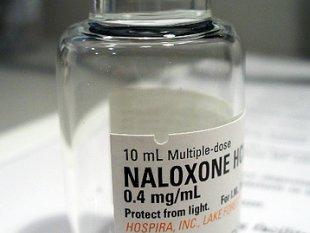Seventeen-year-old Keri Blakinger left school at 10 every morning to train for the rest of her day at the ice rink. A figure skater who performed twice at nationals, Blakinger had planned her future around pair figure skating. When her skating partner decided to take a different path, Blakinger was not only left without a partner, but her future became unknown.
Nine years later, in 2010, she was arrested in Ithaca with possession of six ounces of heroin.
“[Skating] had been my career, my passion. It had been my entire life. I just felt like I had the rug yanked out from underneath me and I was watching my whole life disintegrate,” Blakinger said. “I was 17 at the time, so it just seemed like the absolute end of the word, it didn’t occur to me that there would be any life past that. I fell into a deep depression and eventually I turned to drugs. I was just on a self-destructive streak.”
Blakinger attended Harvard summer school after the downfall of her skating career, in hopes to fall out of her depression.
“It ended up being the first time I had complete and total freedom in my life and it coincided with the time I was really starting to fall apart,” she said.
While heroin use is on the rise in U.S., the increasing use of this drug in Ithaca within the past few years has caused the Ithaca Police Department to take action. Each officer has received training in the last month where they are taught how to administer an opiate overdose antidote called Naloxone.
Naloxone — also known as Narcan — is an agent which, after sprayed nasally, momentarily reverses the effects of an opiate overdose. While it is not a cure for overdoses, it will bring someone back to consciousness, allowing time for medical intervention.
“Naloxone, or Narchan, is an opiate analog, and what that does is block the opiate receptor, so whatever opiates are in someones system can’t attach to those receptors and can then come out of an overdosed state,” said Stacy Cangelosi, education and prevention director at the Alcohol and Drug Council of Tompkins County. “If the person is in that state and they’re injected with Narcan, they’ll come out of their overdose.”
Since police officers are often first on the scene of an overdose, Officer Jamie Williamson of the Ithaca Police Department said it made sense for them to be trained in what to do.
“It’s a dangerous drug for the people using it. With heroin, it’s so addicting that you don’t necessarily care what’s in it, and it’s so destructive,” Williamson said. “To combat that, we’ve recognized how destructive it is, and how much more prevalent it’s becoming in the Ithaca area. To that end, we see more overdoses.”
I-STOP, which stands for Internet System for Tracking Over-Prescribing, is a program which was implemented in New York state in 2013.This program began as a way to monitor and track the use of prescription drugs and opiate based medicines like Oxycodone, Percocet and Vicodin.
“I-STOP has increased the price [of prescription drugs] and as a result it has become easier and cheaper for people to get heroin,” Blakinger said. “It’s easier for people who might have abused painkillers before to now convert to heroin.”
Cangelosi also said one of the causes of the increase in heroin users was a result of programs like I-STOP.
“[The rise in heroin use] more has to do with the switchover from prescription drugs or pharmaceutical drugs,” Cangelosi said. “Because the government is cracking down more with the technology like following people so they can’t doctor-hop and creating these new databases to track peoples prescription drug use so they can’t get extra pills.”
While pharmaceutical drug abuse has become a more knowledgeable issue Cangelosi said it is more common for medical and law enforcement officials to track prescription drugs more closesly.
“Heroin, while its illegal, is readily available. You don’t have to go to a doctor to get it; it’s easier to get and in some cases cheaper for a dose or two,” Cangelosi said.
William Rusen, CEO of Cayuga Addiction Recovery Services (CARS) said the demographic of heroin users has shifted into a younger population. Within CARS, he said clients currently range between ages 18-25, and come from multi-problematic families.
“Heroin has become extraordinarily inexpensive, which has increased its use tremendously among populations that it wouldn’t have been common to use the drug in the past. For instance, high school students who started partying with heroin instead of beer because heroin is cheaper and more exotic,” Rusen said. “It’s a whole different demographic — a person in the past who might have used heroin was and older, inner-city kind of a person, whereas now it’s totally changed.”
While Blakinger’s recovery has been positive, there is still an overarching battle to tackle with the rising rates of heroin use and addiction in Ithaca.
“Once you get started, it’s really easy to just keep going. It’s often difficult to know how to stop,” Blakinger said.
Rusen emphasized the importance of looking at addiction as a health issue rather than only a law enforcement issue.
“We’re going to get a lot further treating addiction when we look at it as a public health problem that needs to be treated, which is not necessarily the way we’ve been approaching the problem,” Rusen said. “I think it’s been skewed too much toward enforcement and not enough in treatment and prevention.”
Since 2010, Blakinger has graduated from Cornell University and is now working full-time for The Ithaca Times.
“A lot of [my recovery] is being around people who are willing to give me a second chance. Luck has played a role in being able to put my life back together,” she said.







